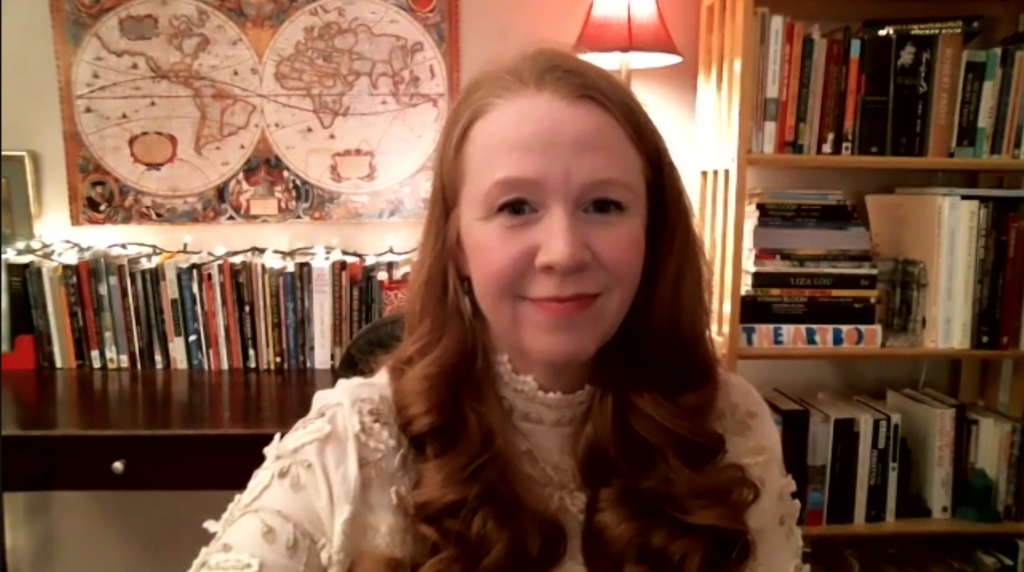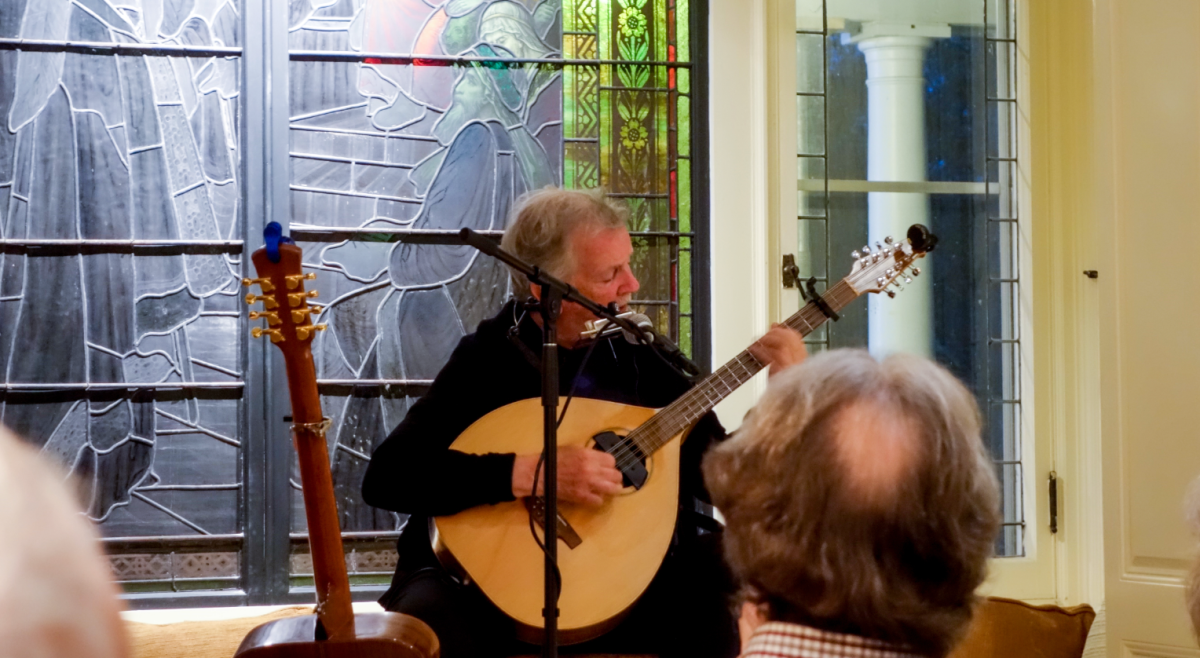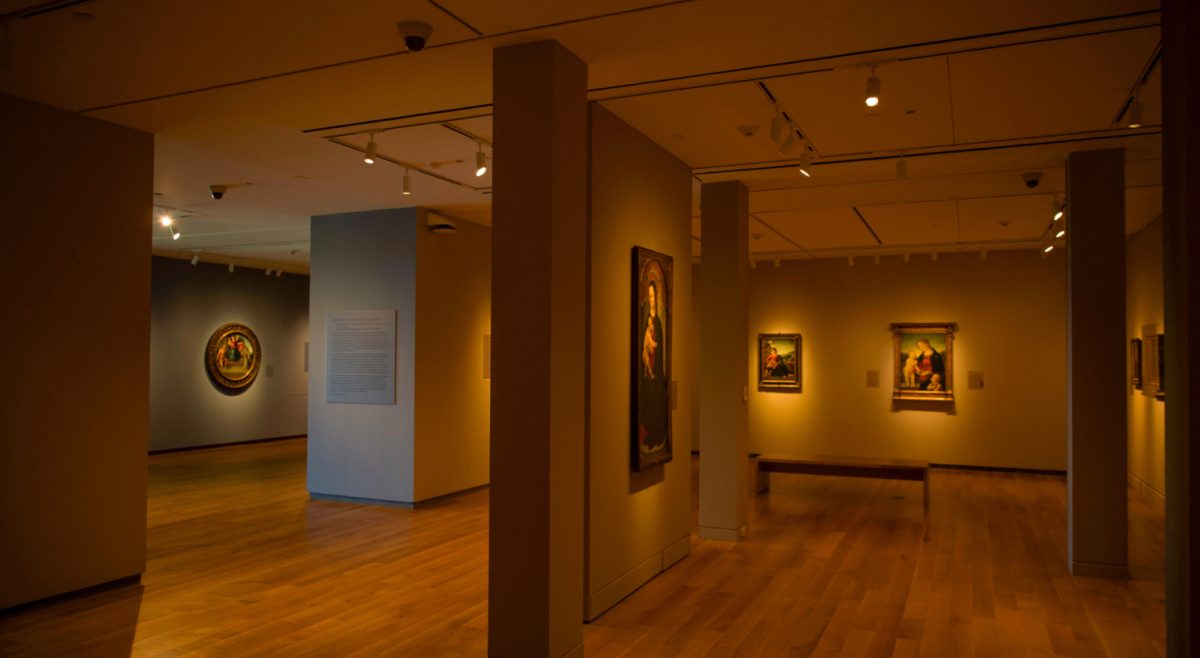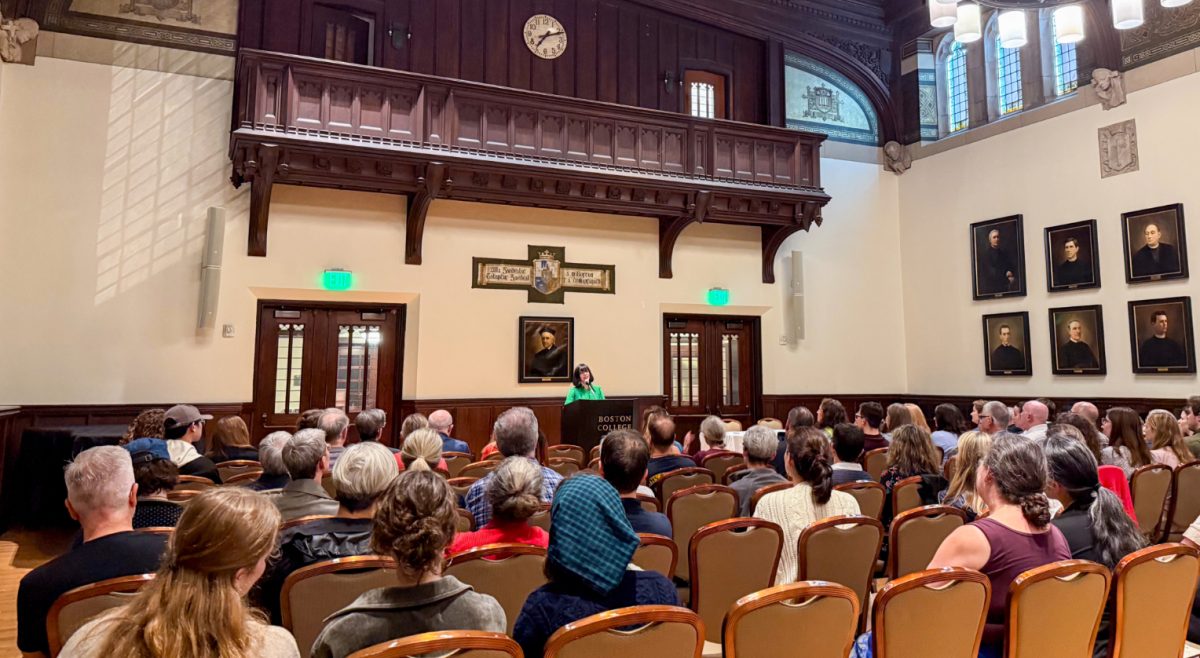Associate professor Allison Adair of the Boston College English department read from her debut collection of poems, The Clearing, at her virtual book launch on Thursday evening.
Originally published in June 2020, The Clearing had its celebratory launch pushed to this February due to the ongoing COVID-19 pandemic.
To Adair, the delay was reminiscent of a childhood memory when she once celebrated her January birthday party in the summer.
“Tonight, when I was getting prepared, I thought, ‘Well, that’s what this is. This is my birthday party. The book came out in June, but [we’re] finally getting to celebrate it.’”
Adair’s poems in The Clearing have garnered praise and awards from journals and reviewers, including the Max Ritvo Poetry Prize from the Milkweed Editions publishing company. Adair’s poems have also been featured in American Poetry Review, Arts & Letters, The Best American Poetry, Best New Poets, Boston Review, and Los Angeles Review, among other journals.
Reviewers and fellow poets have also remarked on Adair’s distinctive lyricism and sensory-rich language infused in her recent collection, including BC English professor Suzanne Matson.
“Each [of Adair’s poems] is an immersive call on senses—a Gravitron ride, a centrifugal force, holding you fast while simultaneously lifting your feet off the ground and spinning you out into the world,” Matson said in her introductory remarks at Thursday’s book launch. “That world, as charted by Adair, is rife with edges, shadows, and jagged spaces, especially in the human realm, in relationships, and in the way women in particular are called upon to negotiate their way past harm and loss of many kinds.”
Adair read 10 selections from The Clearing, introducing each poem with the stories and people that inspired them. Several of the poems drew upon her experiences of growing up in the town of Gettysburg, the Civil War landmark in Pennsylvania. Among them were “RD 8 Box 16A (Rural Route),” her old home address, and “Gettysburg.”
“Place is very, very important to me,” Adair said. “In fact, if I had to pick one thing that I feel like I focus on, it would probably be that: the evocation of place. And I think it’s partly because the places I grew up in really had personalities, but those personalities were in tension with their previous personalities.”
Given the historical significance of Gettysburg as the site of the bloodiest battle of the Civil War, Adair has witnessed the tension of her town’s personality stretched between its weighty past and its quaint present.
She shared memories of her childhood growing up in Gettysburg, specifically how she used to go to McDonald’s as a kid. During the summers, she recalled that the town would be bustling with tourists, and she’d witness how the line at the McDonald’s would be out the door with Civil War enthusiasts, dressed in Confederate and Union costumes. Memories like this one influenced Adair’s poetry.
Adair said in her work she tries to capture and to record personal periods in time. Writing about these moments, like her experiences growing up in Gettysburg, from her perspective creates alternative histories to what readers generally learn about a place or event from a broader narrative.
The book launch was hosted on Zoom by the Boston College English department and The Institute for the Liberal Arts. In addition to Matson’s remarks, associate English professor Christopher Boucher provided introductory banjo music as the audience logged in to the event.
Following the reading, English professor Elizabeth Graver facilitated a Q&A session with the audience as well, among whom were friends, family members, BC students, and colleagues of Adair’s.
During the Q&A, Adair elaborated on writing about grief, overcoming writer’s block, and creating a sense of risk in her poems.
“I ask my students in my poetry workshop, ‘Who or what is at risk in this poem? What is the risk for this speaker? If there is no risk, no experience of uncertainty or novelty or destabilization for the writer, or the speaker, then there’s not going to be any for the reader,” Adair said. “So for me, that’s very, very important. If I’m just lecturing, or popping off, I’m not doing my job as a poet at all.”
Screenshot Courtesy of Asher Kang / For The Heights













